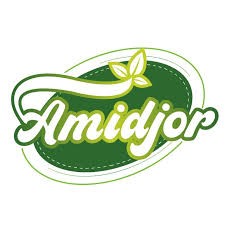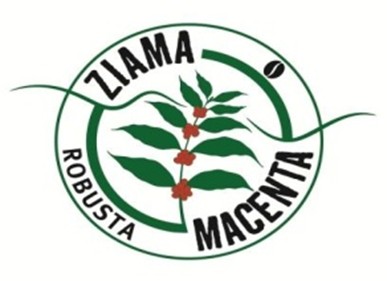Amidjor is a company specialized in agri-food production, processing, and training.

Dan Jakana was born in Kampala, Uganda, where he attended elementary and high school before going to the United States in 1973 for his studies. He studied Marketing at the El Paso College of Business of the University of Texas, where he earned a Bachelor’s degree. He then studied International Business at the Oral Roberts University Graduate School of Business, where he earned an Master’s degree. Dan started working in American corporations in the United States and later operated his own pest controlfirm in Houston, Texas.
In 1994, Dan returned to Kampala and founded the Jakana company. Dan is also a property developer for a luxury 78-unit condominium project,”Jakana Heights”, at the top of Konge Hill in Kampala. In February 2020, Dan published a book, named Born in Africa, about the story of a young African American man in present-day Africa who observes the large African youth population and its enormous untapped agro- and mineral resources.

Type: Limited Liability Company
Year of Creation: 1995
Number of Employees: 12 full-time and 15 part-time
Founder: Dan Jakana
Founding:
In 1994, Dan Jakana wanted to valorise his US food-production experience in Uganda, and started producing banana juice in his mom’s kitchen. He created the company Jakana Ltd in 1995, which was renamed Jakana Foods Ltd in 2008. Jakana quickly became the leading banana juice supplier in Uganda and the region.
Since then, JFL has expanded its produce range and has become an all-natural food processor and packaging technology specialist. It has a packhouse for the storage of fresh fruit, processing (drying and juicing), as well as packing and storage of the final products. Some of the drying process is decentralised at producer locations in Itojo, Mbale, Kikyusa, Kayunga and the company’s farm in Zirobwe.
Business Model
Jakana Foods Ltd (JFL) applies among many, the four fundamental values or organic throughout its business: health, ecology, fairness and care. JFL cares for its customers’, farmers’, employees’ and communities’ health and well-being. The company sources all-natural food products without any added chemicals from organic production that guarantees proper soil care and environmental protection.
JFL also places importance on integrity, and uses the principles of direct trade to ensure fair wages for its farmers and employees, as well as the protection of the environment. JFL’s vision is to see a Jakana all natural food product in every lunch box.
JFL sources its raw produce from the company’s own farm and from outgrowers in Uganda and the East African Rift Valley. The company also has its own urban garden and nursery, where various fruits and vegetables are grown, such as tomatoes, rhubarb, spinach, carrots, baby spinach, mesclun lettuce, arugula/rocket, orange sweet potatoes, banana, papaya and a variety of fruit trees.
Strong Relationships with Smallholders
The mission of Jakana Foods Ltd is to build up the livelihoods of farmers and employees by creating great partnerships through collaborative sourcing, speed to market, and transparency to produce the highest quality products to meet market demand.
JFL operates under the principles of the Fair for Life Social and Fair Trade programmes to ensure fair wages for its employees and fair trade for its farmers. Since July 2018, JFL has a direct trade model, meaning that the outgrowers are directly paid at the time of purchase to ensure them fair market prices and the benefit of their organic product premiums.
JFL also provides training on new farming practices and standards twice a year to its outgrowers to help them improve the production output of their fields.
The company alsoanticipates further growth by supporting the registration of other farmer groups and cooperatives.
JFL purchases organic certified fruit directly from hundreds of farmers in Kayunga, Kangulumira, Luwero, Nakaseke and Ntungamo Districts, from three largeoutgrowers (production area 4–10 ha) and sixoutgrower groups that represent 97 farmers.
Products Covered and Markets
JFL produces four kinds of products, as well as partners’ products. Its four brand products are: organic certified and natural non-organic dried fruit, natural fruit juice and pulp, as well as condiments.
The certified organic dried fruits are made from pineapple, mango, papaya, jackfruit and apple banana. There are available in 50, 100, 150 and 250 g bags or in bulk per commodity, or as a tropical mix that includes dried banana, pineapple and mango. JFL uses a dehydration technique that dries the fruit while ensuring their high nutritional value without adding sugar, sulfites or pesticides. Dried fruit has high anti-oxidant value, as well as vitamins, minerals and fibre which lowers the glycemic index, making it a good snack option for diabetics.
JFL also produces fruit juices and pulp out of Ugandan oranges without any added colour, flavour or sugar; locally grown mangoes from the Northern and Central Regions of Uganda; locally grown pineapple from the Central Region of Uganda; and locally grown Musa and Kayinja juicing bananas of the South Central Region of Uganda. The company also produces a tropical fruit punch which combines tropical fruits such as pineapple, tangerine/and or mango, banana, locally grown citrus fruits and lime from the Southern and Eastern Regions of Uganda (varies per season). All fruit juices are also available in fruit concentrates and fruit pulps.
JFL has a wide range of condiment products made from farm-fresh ingredients, including pineapple jam, mango jam, mango chutney, banana vinegar, dried tomatoes in olive oil, tomato paste, honey salsa, ginger salsa, regular tomato salsa, Thai sweet chili sauce and honey.
JFL sells primarily its dried fruit, fruit juices and pulps on export markets, mainly the United States and the EU, as well as a small portion on the domestic market.
JFL has its own garden and nursery to grow herbs for sale, including basil, Thai basil, lemon basil, purple basil, dill, parsley, coriander/cilantro, sage, lavender, mint, spearmint and rosemary, as well as trees such as moringa, orange, mango, mulberry, red jackfruit, cocoa, Hass avocado, loquat, cocoa and grapes.
The company also sells pheromones used for the eradication of mango fruit flies to protect farmers’ crops and maintain organic integrity.
Aside from its fruit production and processing activities, JFL offers four services: organic certified training, packing technology solutions, manufacturing and drying services.
JFL has an Internal Control System and Extension team which provides training services on NOP/USDA and EU824/2007 organic standards to farmers, agro-processors and exporters to prepare for organic audit by a third party Organic Certified Auditor.
JFL also offers contract manufacturing and packaging solutions to other businesses, with packaging available with full or partial graphics, in aluminium or clear plastic packaging material and different custom sizes. JFL’s manufacturing facility is available for small-scale startup projects to tailor the desired product from dried fruit, mixing juice cocktails to a certain recipe, or pulping fresh fruit for jams or jellies.
Finally, JFL can dry any horticultural products from 40 to 65°C, currentlypineapple, mango, banana, jackfruit, papaya, as well as chives, ginger, tomatoes, carrots, green beans and matooke.
JFL is managing to a HACCP plan and renews organic (NOP USDA and EU) certified on an annual basis. It is working on implementing HACCP certification for its processing and packing facility.
Innovations: Milestones and Expansion Plans
JFL has its own packing technology solutions: it uses stand-up pouch packaging designed to add shelf life to products without having to add artificial preservatives to its dried fruit products.
In 2004, JFL expanded its factory with the financial support of the African Development Fund in 2004. The company later built up a processing facility with acapacity of 7000 litres of fresh juice per day.
In 2014, JFL expanded its operation to provide organic certified dried fruit for the US market.
JFL benefits from the Agricultural Business Initiative (aBi) Trust (Kampala, Uganda) and has added another 100registered farmers to itsorganic certified growers list.
Since 2018, JFL has also received various types of support from COLEAD in the form of self-assessment support, and group and specific training including on risk assessment with a focus on HACCP principles, good hygiene practices and traceability principles, crop protection and safe use of pesticides, and organic standards.
With the support oft he aBi Trust, JFL plans to empower four groups of farmers with traditional solar dryers so they can learn the skills of producing quality dried fruit.
JFL is also working on diversifying its activity to become a local and international tourist destination with Jakana EcoCottages. A trip to the Jakana Urban Farm includes accommodation in a cottage near the heart of Kampala, breakfast with natural JFL products, as well as a tour and hands-on experience in JFL’s urban garden, learning how to pot or plant starters, or a tour of the food factory on site, learning how to make all natural juice, dried fruit, or one of the many seasonal products.
Success Factors and Lessons Learned
JFL has created a community premium fund with its buyers to give back to the communities in which its farmers live. The communities which surround the JFL factory and farm benefit from training, agro-processing education,andnew product development opportunities for all entrepreneurs interested in value addition. JFL further offers internship opportunities, job training and skills building in order to grow the community. On the occasion of Earth Day 2020, JFL launched a tree-planting initiative and provided mango trees for planting.
JFL is partnered with the Uganda Society for the Protection and Care of Animals (USPCA) to raise funds to offer free spay and neuter clinics for dogs and cats in the community as a contribution to public health and animal welfare. The USPCA will offer free advisory services to farmers of food animals.
JFL organises school tours of up to 100 students to introduce them to a healthier lifestyle and to encourage them to look towards agricultural and agribusiness opportunities for the future.
The company is also educating communities about the links between organic farming and solutions to curb climate change. For example, JFL discourages any synthetic chemical usage or planting in protected environments, and encourages the planting of five trees per year per farm, as well as the involvement of young people in farming to ensure inter-generational knowledge.
JFL is also participating in the updating of the Uganda National Industry Policy 2019 in order to ensure that the Industry 4.0 Revolution incorporates smart technology, with links to climate change, trade, food security, and gender roles.
In order to tap into the potential $1.3 billion market for tropical dried fruit,JFLaims to acquire Japanese Agricultural Standard (JAS) certification to start exports to Japan, and is also looking into European markets.
Additional Resources
Join our Forum to discuss and explore how to encourage innovations across agricultural value chains to transform food systems in African, Caribbean and Pacific countries and beyond, promote sustainable agriculture & leverage investments. Share insights, ask questions, and collaborate on innovative solutions for a greener future.
Recent Business Profiles

Amidjor is a company specialized in agri-food production, processing, and training.

ADECAM is a community-driven organisation in Guinea dedicated to protecting, promoting, and developing the Ziama-Macenta Geographical Indication coffee, while supporting smallholder producers...

Tac Maz Sustainable Ventures is a climate-smart social enterprise in Malawi supporting smallholder farmers through sustainable poultry and horticulture production.

Bono Salus is a Zimbabwean woman-led agribusiness specializing in urban hydroponic farming of microgreens.

The Nut Place is a Nigerian food innovation company that processes locally grown edible nuts into gluten-free, nutrient-dense products to improve nutrition, reduce post-harvest losses, and promote...